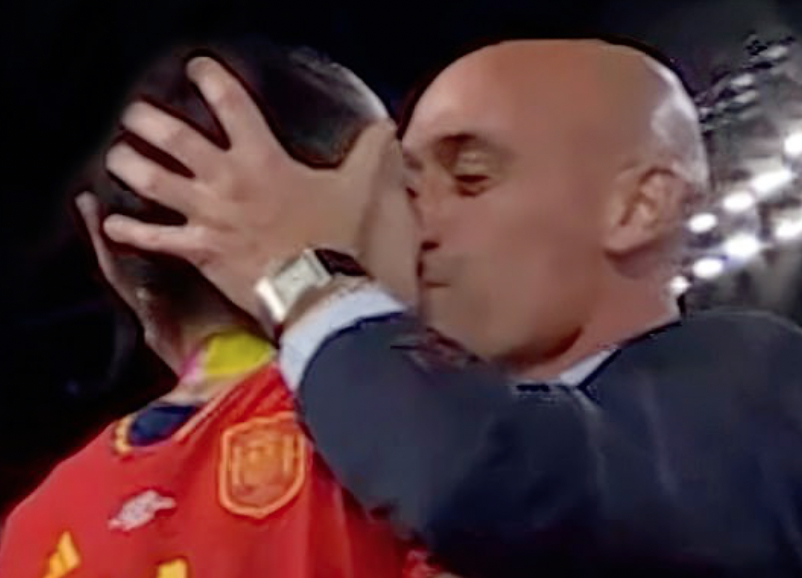March 28 – Spanish prosecutors are seeking a prison term of two years and six months for former federation (RFEF) chief Luis Rubiales for his infamous unsolicited kiss on the lips of women’s World Cup winner Jennifer Hermoso.
They also want Rubiales, who has been charged with sexual assault and coercion, to pay at least €50,000 in compensation to Hermoso, according to court documents.
During the incident, which took place on August 20 after Spain beat England to win the Women’s World Cup final in Australia, Rubiales held Hermoso’s head in both hands and forcibly kissed her on the lips.
The kiss took place live in front of the world’s cameras, provoking widespread outrage and prompting a three-year ban by FIFA. He then resigned as RFEF boss after weeks of refusing to step down.
The scandal overshadowed a historic moment for Spain’s women’s team which was celebrating its first-ever World Cup win.
At the time, Rubiales brushed it off as “a consensual” peck on the lips, but Hermoso, 33, said it was not. Under Spanish law, a non-consensual kiss can be classed as sexual assault.
Rubiales “grabbed the player’s head with both hands, and surprisingly and without consent or the player’s acceptance, he kissed her on the lips,” prosecutors are reported as writing.
After realising the kiss could have “personal and professional consequences” Rubiales and his entourage began to exert “constant pressure” on Hermoso so that she would “publicly justify” the kiss as consensual.
The pressure caused her “anxiety and intense stress” for several months, they added.
Prosecutors requested that the 46-year-old face a year behind bars for the kiss, plus 18 months jail for the charge of coercion.
Three of his former associates are also being tried for putting pressure on Hermoso: former women’s coach Jorge Vilda, men’s team director Albert Luque and RFEF marketing boss Ruben Rivera. All three have denied any wrongdoing.
Were Rubiales to be convicted, he would not necessarily go to jail. Spain’s criminal code allows judges to suspend a sentence if – as in this case – no sentence exceeds two years individually.
Contact the writer of this story at moc.l1751327976labto1751327976ofdlr1751327976owedi1751327976sni@w1751327976ahsra1751327976w.wer1751327976dna1751327976

